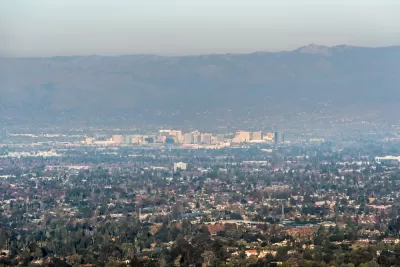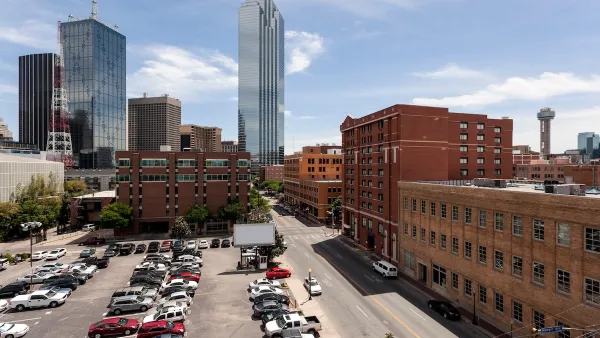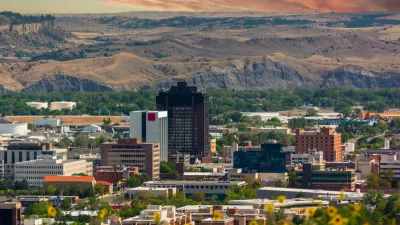The California city is the largest in the country to abolish parking requirements, joining a bevy of other localities that are shifting to less car-oriented development.

San Jose, California is the newest and largest U.S. city to abolish minimum parking requirements for new developments, easing the way for new housing construction and lowering the cost of building in the formerly car-oriented city. Reporting for the Mercury News, Eliyahu Kamisher explains that the city’s parking requirements, mostly unchanged since 1965, have been blamed for driving up housing costs, with parking spots costing upwards of $50,000 apiece to build.
Similar to other cities, “The new policy does not prevent developers from building parking lots but will allow them to ‘rightsize’ parking for new developments as they see fit. It also does not remove any current parking.”
With a population of 1 million people, San Jose is the largest U.S. city to remove parking minimums. “It is an especially big turnaround for a largely suburban community that has historically required businesses and developers to provide more on-site parking than any other major city in the state, according to a Bay Area News Group survey.” Now, new rules will require developers to include bicycle parking—“including one bike for every two lanes at bowling alleys and at least one bicycle spot for every 800 square feet at restaurants.”
FULL STORY: Bye-bye parking requirements: San Jose becomes largest city in U.S. to abolish minimum parking

Planetizen Federal Action Tracker
A weekly monitor of how Trump’s orders and actions are impacting planners and planning in America.

Congressman Proposes Bill to Rename DC Metro “Trump Train”
The Make Autorail Great Again Act would withhold federal funding to the system until the Washington Metropolitan Area Transit Authority (WMATA), rebrands as the Washington Metropolitan Authority for Greater Access (WMAGA).

DARTSpace Platform Streamlines Dallas TOD Application Process
The Dallas transit agency hopes a shorter permitting timeline will boost transit-oriented development around rail stations.

San Francisco's School District Spent $105M To Build Affordable Housing for Teachers — And That's Just the Beginning
SFUSD joins a growing list of school districts using their land holdings to address housing affordability challenges faced by their own employees.

Car-Centric LA Suburb Looks to a Train-Oriented Future
City leaders in Rancho Cucamonga, the future western terminus of the Brightline West rail line to Las Vegas, want to reimagine the city as a transit-oriented, pedestrian-friendly community.

New Alaska Bitcoin Mine Would Burn as Much Energy as the State’s Largest Coal Plant
Fueled by “stranded” natural gas, the startup hopes to become the largest in the US, and to make Alaska an industry center.
Urban Design for Planners 1: Software Tools
This six-course series explores essential urban design concepts using open source software and equips planners with the tools they need to participate fully in the urban design process.
Planning for Universal Design
Learn the tools for implementing Universal Design in planning regulations.
Municipality of Princeton
Roanoke Valley-Alleghany Regional Commission
City of Mt Shasta
City of Camden Redevelopment Agency
City of Astoria
Transportation Research & Education Center (TREC) at Portland State University
US High Speed Rail Association
City of Camden Redevelopment Agency
Municipality of Princeton (NJ)





























